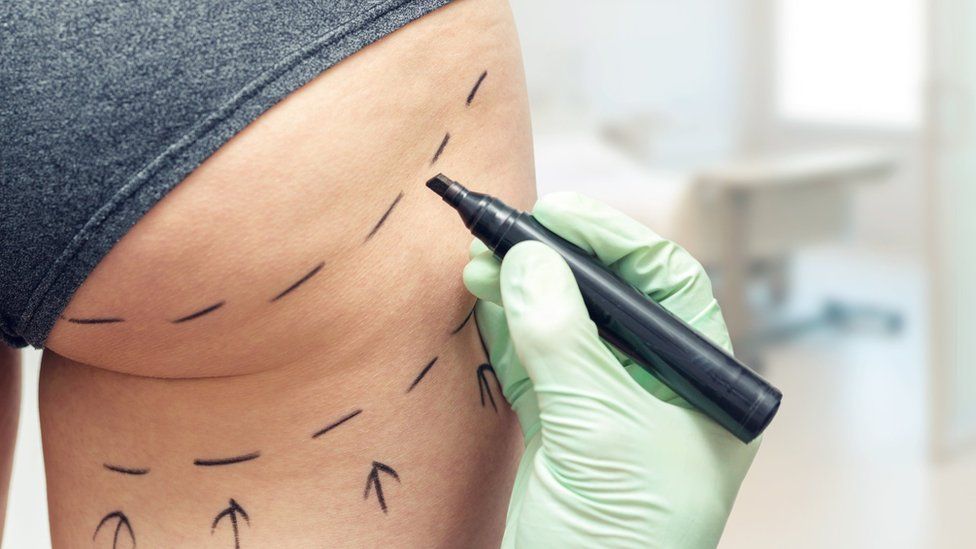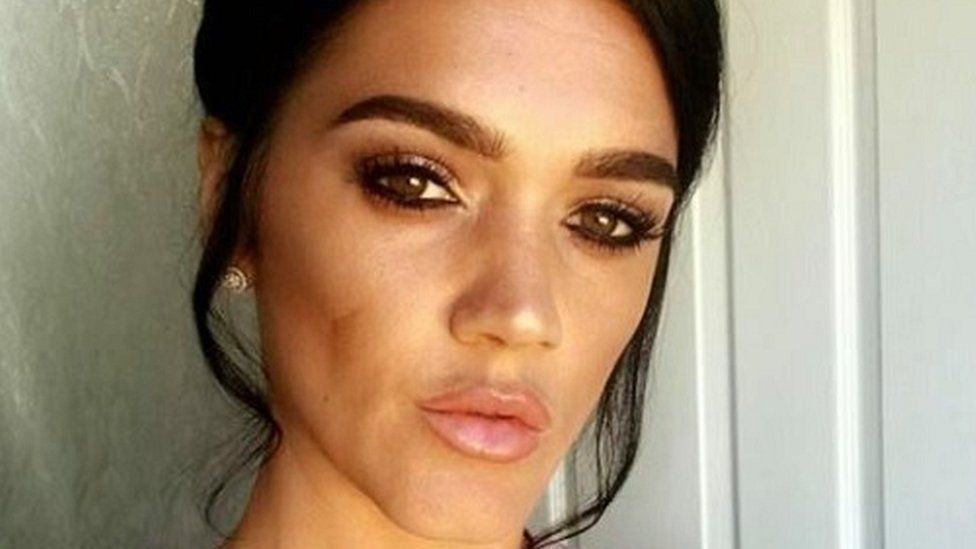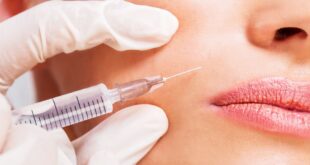
UK plastic surgeons have released new guidelines to try to make Brazilian Butt Lift (BBL) procedures safer for people who desire a bigger bottom.
Some women have died from the operation, which involves sucking out fat from elsewhere – such as the belly – and injecting it into butt cheeks.
The British Association of Plastic Surgeons (BAAPS) says the injections should not go very deep.
That should help avoid complications such as dangerous clots, they say.
According to the NHS, it has the highest death rate of all cosmetic procedures, and the risk of death from BBL surgery is at least 10 times higher than many other procedures.
A major concern is that the injected fat can cause a blockage in a blood vessel in the lungs – called a pulmonary embolism – which can be fatal.

This happened to Leah Cambridge, a beautician and mother of three from Leeds.
She suffered a massive pulmonary embolism during the operation at a private hospital in Turkey in 2018, a coroner found.
The BAAPS says part of the problem with the fat-grafting procedure is when the injections go deep and into the muscle.
Surgeons should insert the needle less far in, so the injection goes just under the skin, into the subcutaneous layer.
They should use an ultrasound scan to guide them while they are doing it, to ensure the shot stays in the correct zone.
BAAPS president Marc Pacifico told the BBC: “Unfortunately we don’t know how many people have been going for these risky BBL procedures. We have been recommending against it for a number of years after seeing quite a frightening death rate associated with it. But people have been going abroad to get it done.”
He said the NHS was sometimes left to pick up the pieces of botched surgery from overseas.
He said anyone seeking cosmetic surgery should thoroughly research the procedure, the clinic and the surgeon.
“Make sure you ask if the surgeon will be using ultrasound for gluteal fat grafting. We are recommending that surgeons should only perform this with real time ultrasound guidance as the only way to ensure the procedure is performed superficially and safely.”



